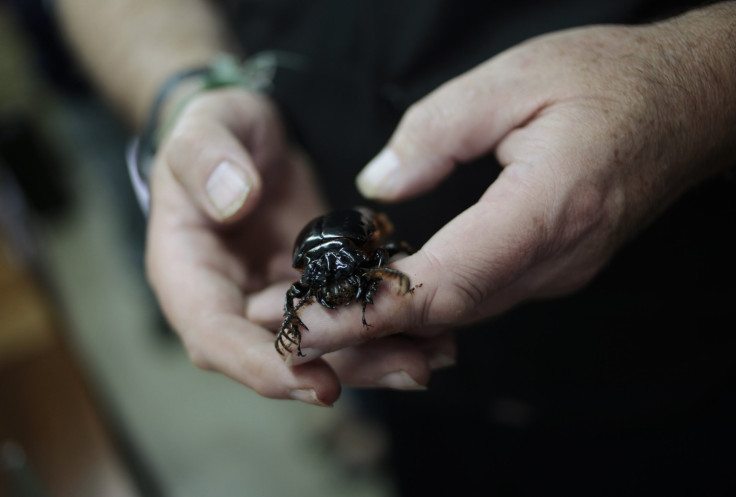With burying beetles, study shows smaller males have more sex appeal

Small male burying beetles attract more female partners because they are less likely to get into fights with other male burying beetles, according to a new study. However, researchers from the University of Exeter also found that small male beetles are not better at parenting despite being more successful at attracting mates.
The study, published online in the Journal of Evolutionary Biology on Jan. 8, is the first to test whether male burying beetles would help take care of their family if it knew the difficulty of finding or competing for other female partners. The researchers placed the male beetles in the wild with the carcass of a mouse, the ideal place to mate and start a family.
The team observed that small males were better at attracting females than their larger counterparts. Lead researcher Paul Hopwood of the Centre for Ecology and Conservation at the University of Exeter's Penryn Campus in Cornwall said in a press release that results show that female burying beetles go after smaller male beetles to avoid relationships involving conflict and competition from other female burying beetles.
The Natural Environment Research Council (NERC) funded the research that allowed male burying beetles to mature in a laboratory in groups with varying ratios of male and female beetles. This method was done to provide the males clues to the competition they might face and the number of females in the future.
After growing the beetles in the laboratory, the researchers placed the insects with a carcass in the wild. When a female turned up first, both beetles settled and bred quickly. Meanwhile, when the first beetle to arrive was male, relationships became problematic mainly because competition from other male beetles resulted in fights.
The researchers also added that small males were more faithful than their larger pairs. The results oppose the common knowledge that larger male animals attract more females, passing on their genes more successfully.
However, Hopwood said that the small males did not react to the attraction by being better parents to their offspring. This proves that committed parenting is not associated with size or social background, Hopwood noted.




















